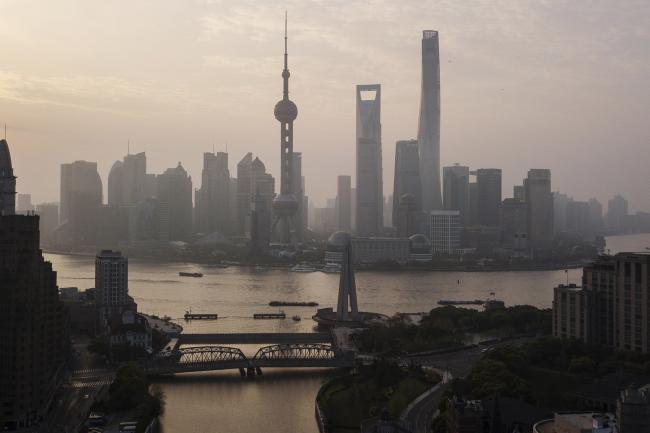(Bloomberg) -- A record pace of defaults hit China’s domestic bonds this year. In 2020, it could be the offshore market’s turn.
That’s because of a looming wall of dollar debt, issued by now-stressed borrowers, that comes to maturity. There’s $8.6 billion of offshore bonds coming due next year that currently have at least 15% yields -- classifying them as stressed, according to data compiled by Bloomberg.
Put another way, nearly 40% of total outstanding corporate dollar bonds from China’s most troubled companies is due next year. With Chinese policy makers emphasizing the need to continue a campaign to limit leverage, it suggests a pick-up in defaults. For those lured by juicy yields in today’s low-rate universe, that means danger.
“This is a market where you want to go for safer bets rather than be a hero,” said Michel Lowy, chief executive officer at Hong Kong-based SC Lowy, which specializes in fixed income. “We are on the verge of a massive snowball effect,” where defaults spur funds to take money out of high-yield debt, driving up yields and making it all the harder for firms to refinance, he said.
Lowy advises sticking with companies with strong cash flows.
Trouble is, a swathe of the borrowers with debt due next year lacked strong fundamentals, and took advantage of unusually sweet financing conditions back in 2017 -- the year of the synchronous global expansion. That’s according to Wonnie Chu, managing director of fixed income at GaoTeng Global Asset Management Ltd.
“A lot of them were issued with a low interest rate not comparable to the credit risk,” she said. Chu predicts a full-blown shock will be avoided as enough investors have already begun to anticipate problems.
Indeed, money managers have already started slashing their holdings of riskier companies. Asian high-yield credit funds saw a near 3% outflow from their assets under management in August, according to Morgan Stanley (NYSE:MS). (Asian high yield is dominated by Chinese issuers.) At the same time, funds that focus on Asia investment-grade saw an inflow close to 1%.
Another sign of investor concern: prices in the secondary market have slumped, driving up yields. That’s spurred a doubling in the amount of Chinese dollar bonds with stressed-level premiums since March.
Read how default risks are curbing demand for bonds from first-time issuers.
Among the 25 stressed borrowers with debt due next year:
- Yida China Holdings. Calls to the property developer in Shanghai seeking comment on its financing outlook went unanswered.
- Tewoo Group Co. Calls to the state-linked trading group based in Tianjin, southeast of Beijing, also went unanswered.
- Peking University Founder Group. A spokesperson for the technology services firm in Beijing said the group has an ample credit line with lenders, with 62.5 billion yuan ($8.8 billion) untapped as of June, and cash of 45.3 billion yuan.
- Oceanwide Holdings. The developer based in Beijing declined to comment when reached by phone.
Any refinancing crunch could offer opportunities. Lowy says “we are positioning ourselves with alternative capital that we can syndicate to investment partners with private money to refinance some of those debt obligations.”
China’s high-yield dollar-debt issuers tend to have higher default risks than peers abroad, according to Morgan Stanley (NYSE:MS) research. That’s because of relatively short bond-maturity profiles -- at close to 2.5 years, Kelvin Pang, head of the bank’s Asia credit strategy team in Hong Kong, wrote in a note earlier this month.
High-yield issuers’ loans maturities are also of shorter duration, at one to three years, Pang wrote. It all means that “China corporates are extremely sensitive to credit conditions,” he wrote.
Bottom line, according to Owen Gallimore, head of credit strategy at Australia & New Zealand Banking Group: “Next year, as the maturity wall comes, the default rate is likely to increase” in the Chinese dollar-debt market.
(Adds comment from company in third bullet point.)
